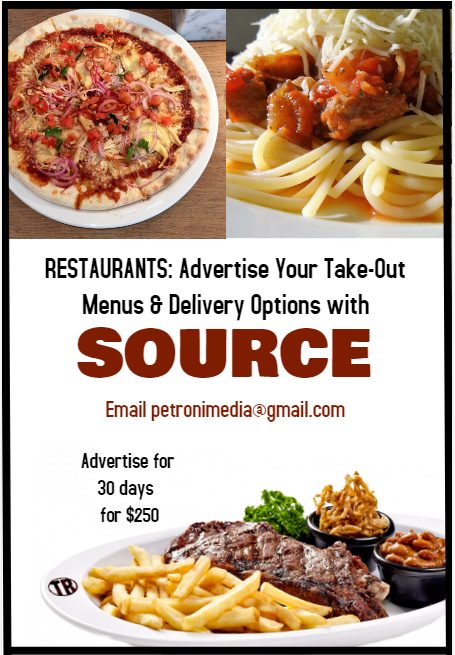By Rick McKenna
***
[broadstreet zone=”52093″]
FRAMINGHAM – Framingham’s Question #3 has certainly garnered an expansive amount of public discourse, and unfortunately, much debate has evolved into personal attacks.
One would think that a Community Preservation Act on the ballot would be pretty much a no-brainer.
Everyone should be okay with throwing a few bucks into the kitty, get some matching funds from the State, and reap some benefits down the road for our open space, historic preservation, and community housing concerns—right? Mostly yes, except for the elephant that’s in the room. That sickly elephant is Covid-19.
Restaurants in our area are shuttering at an incredible rate, with no end in sight. Many in the small business community are hanging on by the threads. Commercial property owners and landlords are not able to collect on rents–and considering many have closed—have about as much uncertainty for what the future holds, as the virus itself. So many in our community have lost their jobs, or have been furloughed. And now, virologists are talking
about second waves and bleak predictions regarding infection rates, treatments, and vaccines.
[broadstreet zone=”59946″]
We often look at navigating through hard times saying that there is “light at the end of the tunnel”. We plan accordingly, while knowing the parameters of an event, and the time of its eventual culmination. Here, we are dealing with a pandemic that is wiping out sections of our populations. There is presently no end in sight. We have no idea of how much more despair our personal, business and municipal economies will endure.
Now is probably the worst and most dangerous time in Framingham’s 320-year history to self-impose an additional tax to our citizens and business community. Proponents of #3 tell us that a great % of individuals (and businesses?) will be exempt from paying the CPA surcharge (tax). Actually, the State DOR form that one must fill out is three pages long, and for many, would require help from an accountant to fill out. The cost of that help alone would supersede any exempted monies. A further disclosure from the State is “TO AVOID INTEREST AND COLLECTION CHARGES, YOU MUST PAY SURCHARGE AS BILLED BY DUE DATE. IF EXEMPTION IS GRANTED AND SURCHARGE IS PAID IN FULL, REFUND WILL BE MADE.” Do we really think that those eligible will go through all this trouble? Doubt it.
[broadstreet zone=”59948″]
Another concern many have is that the division of fund allocation is quite vague and arbitrary. With the three main categories, open space, historic preservation, and community housing, conceivably 80% of the monies could be apportioned to only one of these sectors.
Highly unlikely, but definitely possible.
Research shows that surrounding communities have, in most cases, had to couple municipal monies and bonds with CPA-funded projects that have been decided upon by their committees. Probably a welcomed and reasonable part of the equation—if financially prudent. Let’s look at our City’s financial situation, from a lay person’s perspective.
A new approved tax increase for the Fuller School project. A $ 600,000 feasibility study for a new/reconstructed elementary school. A high school that is bursting at the seams. The memorial Building in desperate need of repair or rebuild. The uninhabitable Danforth building. The crumbling Pearl Street Garage. Ever increasing sewer and water costs. Storm Water Enterprise Fund. City departmental budgets have been cut. Public services have been cut back. The list goes on. How, in good conscience, can we believe that the City will be able to add funding to make these possible CPA projects come to fruition, in the near term or the long term? The economic future is not only unknown, its rebound is uncharted.

Proponents on #3 argue, “but the CPA tax will not take effect until 2022”. In actuality, fiscal 2022 begins this coming July.
My personal stance on Question #3 might seem counterintuitive. My family and I are huge outdoor enthusiasts. Five kayaks, Ten pair of snowshoes. Numerous bicycles, both mountain and street types. Grew up mountain climbing in the white mountains and AMC trips. I am active in protecting Blue Space and have been involved in Conservation’s Water Chestnut remediation projects. Additionally, my small building company specializes in historic home restoration and renovation. Extensive experience on restoration of pre-civil war Greek Revival homes. Growing up, I was an avid skier and pond hockey nut. I love the outdoors and open space, and my passion is bringing historic buildings back to life. I spent seven years trying to acquire the Chapel in Nobscot and turn it into a family operated community meeting house and restaurant. I’m presently working on the restoration of the Nobscot Post Office/Library/Train Ticket Station historic building in front of Heritage, next to Hemenway School.
But timing is everything.
In reflection, I believe the CPA to be a great idea and a great concept. There are great people behind the CPA, and I applaud their efforts. The CPA has a promising future in Framingham. However, the timing of this ballot initiative is abysmal.
People are hurting, financially and emotionally. Businesses are being devastated. Our citizens are out of work. Our restaurants are closing. Considering that we collectively have no idea what tomorrow’s COVID headline will be, I cannot think of a worse time to be considering a self-imposed tax increase on our community—as the level of uncertainties, in all aspects of life, are at never before seen highs.
Rick McKenna is a resident of the Nobscot neighborhood of Framingham and a voter in District 1.


